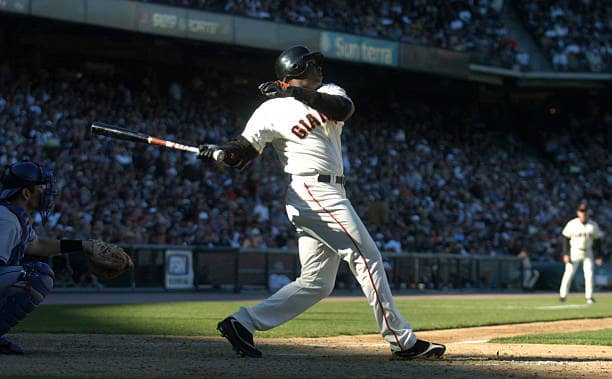Baseball is changing, and so is the climate.
Warmer air is less dense and thus generally easier for baseballs to travel through, which will continue to boost home runs totals this century in Major League Baseball, according to a new and widely-circulated peer-reviewed study from researchers at Dartmouth College. It’s just thermodynamics.
The Earth is on a trajectory to be far less habitable for human and most animal life, but on the way to this bleak fate, future baseball fans might witness more long balls than any previous generation. Dystopian indeed, but dystopia has been here for a very long time.
The study, published this month in the Bulletin of the American Meteorological Society, isolated “human-caused warming with climate models, finding that >500 home runs since 2010 are attributable to historical warming.” What’s more, “several hundred additional home runs per season are projected due to future warming.”
“Between 2010 and 2019,” the study continued, “global warming led to an additional 58 home runs per year on average […] This acceleration, while statistically distinguishable, is small—an increase of some 1% relative to the total number of home runs in 2019. Other factors, such as changes in the height of the stitches on the baseball, appear to have been more important in driving recent home run trends. Despite the modest historical change, home runs will—absent changes in gameplay—increase with future warming. Each degree of global warming is associated with an additional ~95 home runs per baseball season.”
A league record 6,776 homers were hit in 2019, the final year of the study.
Depending on the extent of future warming (it can be mitigated), around 500 additional home runs could be hit each year. “The home run ‘explosion’ between 2015 and 2019 resulted in ~350 additional home runs per year, and warming can generate a home run surge that exceeds previous such surges,” the study said.
No Asterisks This Time
Imagine a ghastly news segment from the year 2080: Reports of 100,000 people dead in the U.S. from a calamitous heatwave, interrupted by highlights of a baseball star passing Barry Bonds’ record 73 home runs in a season set multiple generations ago in the year 2001.
While the long ball increases will be seen league-wide, some special talents might make history with the climate advantage. No asterisks are needed this time. It’s just climate collapse.
But what if Bonds’ record is still never broken? He should already be in the Baseball Hall of Fame, but especially if future players can’t touch his mark even with the help of additional warming, right?
Following Bonds’ record-setting 2001, it took 21 years for a player to hit at least 60 home runs in a regular season again. Current New York Yankees star Aaron Judge smashed 62 in 2022. Notably, the study didn’t analyze any individual player performances.
Balls traveling farther and faster could be a factor in more scoring. What might those MLB single-game over/under totals look like in the future at sportsbooks?
If this all sounds absurd, it’s because it is. Who cares about betting or the “business of baseball” (as the study put it) in this context with so much else at stake for people as the climate deteriorates? Besides, we don’t know if there will even be Major League Baseball by the year 2100.

